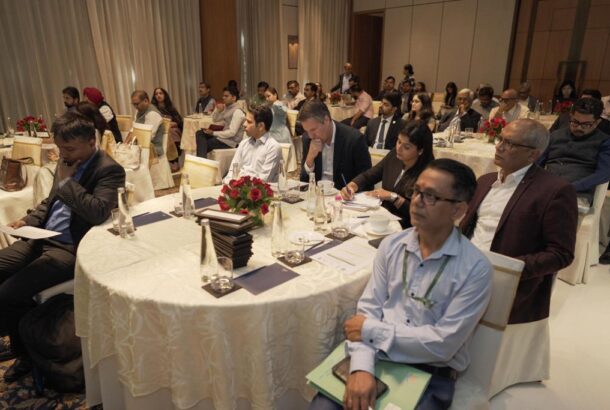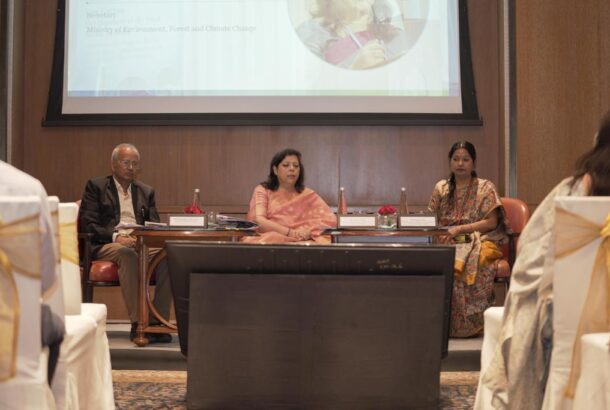National LeadIT Workshop on Steel hosted by India.

On 18th October the Ministry of Environment, Forest and Climate Change together with the Ministry of Steel hosted a LeadIT Workshop on Low Carbon Development in the Indian steel sector. UNDP and Invest India supported in organizing the event. The primary objective was to address the challenges associated with the steel industry’s transition towards low-carbon practices and to outline the role of LeadIT in providing solutions.
A diverse group of stakeholders, including prominent steel companies, steel associations, the All India Induction Furnace Association, financial institutions, and multilateral development banks engaged in discussions about innovative solutions to achieve low-carbon transformation in India’s steel sector. The outcomes are expected to bolster India’s commitment to climate action.
Secretary, Environment, Forest & Climate Change, Smt Leena Nandan highlighted that under India’s G20 Presidency, the Environment and Climate Sustainability Working Group (ECSWG) of the G20 played an important role in furthering the resource efficiency and circular economy dialogue. She affirmed that the policies should translate to action on ground. Industry transition with respect to the steel sector requires mainstreaming of circularity, material efficiency, scaling up renewables especially in the MSME sector and managing the transition risk. Finance was cited as one of the key drivers for this required change.
Secretary, Steel, Shri Nagendra Nath Sinha highlighted that managing the steel sector sustainably with a package of measures which should benefit both the economy and the industry. Emerging technologies like CCUS, premium on green steel and government procurement policies were highlighted. He maintained that utilization of biomass, biofuel and biochar is an important area, however have technical and business challenges. Policy measures, research & development, access to finance and technology transfer with consortia approach were underscored. LeadIT platform was seen as a platform for facilitating the low-carbon transition agenda, technology co-development, technical assistance, financial assistance and research & development.
The workshop also featured two focused panel discussions, one on large-scale steel plants and another on the MSME sector. Panelists from the Swedish government, industry experts, sector associations, and financial institutions, discussed Sweden’s journey toward a low-carbon transition in the steel industry. Key topics included addressing technological challenges related to blast furnaces and reducing emissions through the use of Carbon Capture, Utilization, and Storage (CCUS). The alignment of business plans with climate action investments, the importance of research and development, co-development, capacity building, supportive policies, fiscal support, and innovative financial instruments were all emphasized.
The insights gathered during the workshop will play a crucial role in shaping the upcoming phase of LeadIT, referred to as LeadIT 2.0. This new phase is expected to be officially announced at the UNFCC COP 28 conference in the United Arab Emirates in December 2023.

